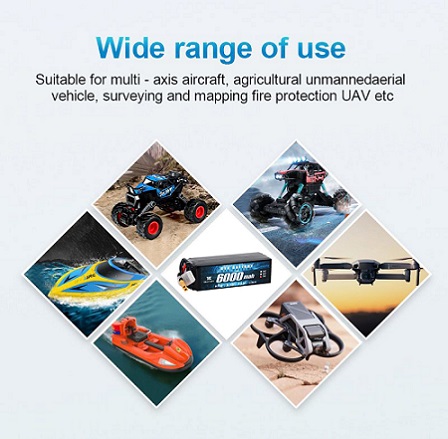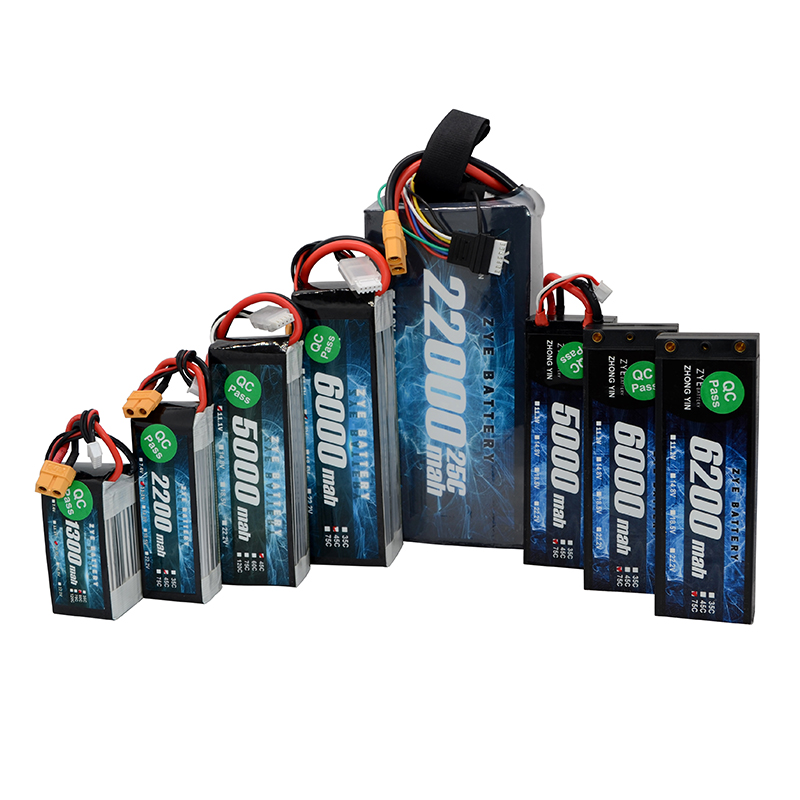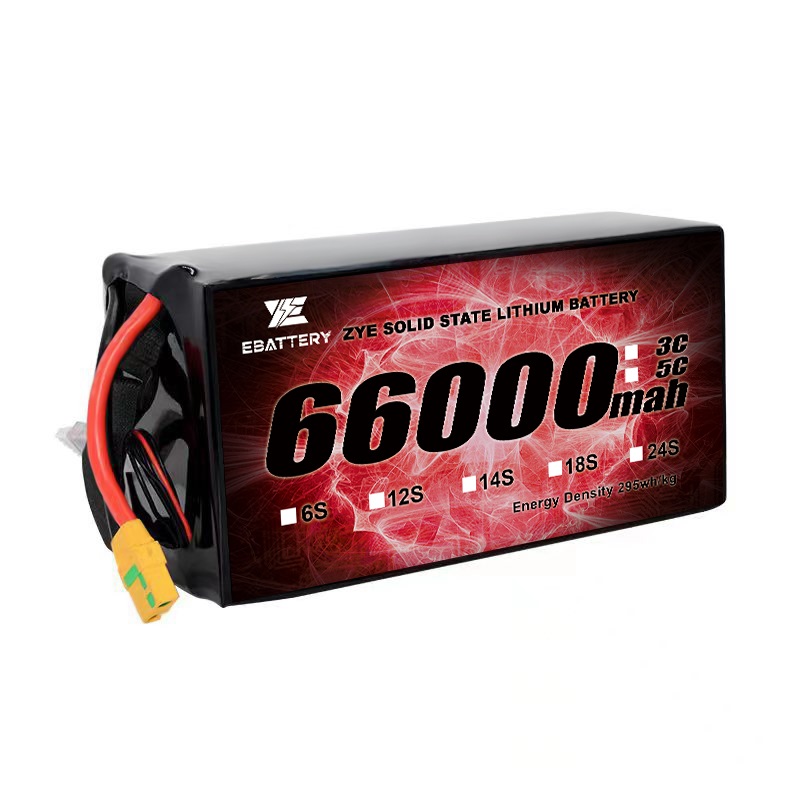Can I use a lipo battery in my rc car?
2025-03-12
Radio-controlled (RC) car enthusiasts are always on the lookout for ways to enhance their vehicles' performance. One question that frequently arises is whether it's possible to use a LiPo (Lithium Polymer) battery in an RC car. The short answer is yes, you can use a rc lipo battery in your RC car, and doing so can offer several advantages. Let's delve into the details of using LiPo batteries in RC cars and explore the benefits and considerations involved.
What Are the Advantages of Using a LiPo Battery in an RC Car?
LiPo batteries have gained immense popularity in the RC hobby world, and for good reason. These power sources offer several advantages over traditional NiMH (Nickel-Metal Hydride) or NiCd (Nickel-Cadmium) batteries. Here are some key benefits of using a rc lipo battery in your RC car:
Higher Energy Density: LiPo batteries pack more power into a smaller, lighter package. This means you can get longer run times or more powerful performance without adding extra weight to your RC car.
Improved Power-to-Weight Ratio: The lightweight nature of LiPo batteries contributes to better acceleration and handling in your RC car.
Higher Voltage: LiPo cells have a nominal voltage of 3.7V, compared to 1.2V for NiMH or NiCd cells. This higher voltage can translate to more speed and power for your RC car.
Faster Charging: LiPo batteries can be charged more quickly than their NiMH or NiCd counterparts, getting you back on the track or in the field faster.
No Memory Effect: Unlike NiCd batteries, LiPo batteries don't suffer from the "memory effect," meaning you can charge them at any time without worrying about reducing their capacity.
These advantages make LiPo batteries an attractive option for RC car enthusiasts looking to maximize their vehicle's performance. However, it's important to note that using LiPo batteries also comes with some responsibilities and considerations, which we'll discuss in the following sections.
Are There Any Compatibility Issues When Installing a LiPo Battery in My RC Car?
While LiPo batteries offer numerous benefits, it's crucial to ensure compatibility with your RC car before making the switch. Here are some key factors to consider:
Voltage Compatibility: Ensure that your RC car's electronics can handle the higher voltage of a LiPo battery. Many modern RC cars are designed to work with LiPo batteries, but older models may require modifications or voltage regulators.
Physical Fit: LiPo batteries come in various shapes and sizes. Make sure the battery you choose fits properly in your RC car's battery compartment.
Connector Types: Check that the connectors on the LiPo battery match those on your RC car. Common connector types include Deans, XT60, and EC3. If they don't match, you may need to use an adapter or change the connectors.
Electronic Speed Control (ESC) Compatibility: Verify that your ESC is designed to work with LiPo batteries. Some older ESCs may not have the necessary low-voltage cutoff feature to protect LiPo batteries from over-discharge.
Charger Compatibility: LiPo batteries require specific chargers designed for their chemistry. Ensure you have a LiPo-compatible charger before making the switch.
To avoid potential issues, it's advisable to consult your RC car's manual or reach out to the manufacturer to confirm LiPo compatibility. If your RC car isn't LiPo-ready out of the box, you may need to upgrade certain components to safely use a rc lipo battery.

How Do LiPo Batteries Impact the Performance of My RC Car?
Switching to a LiPo battery can significantly enhance your RC car's performance in several ways:
Increased Speed: The higher voltage output of LiPo batteries can result in faster top speeds for your RC car, especially when compared to NiMH or NiCd batteries of the same cell count.
Improved Acceleration: LiPo batteries can deliver higher current output, translating to quicker acceleration and more responsive throttle control.
Extended Run Time: The higher energy density of LiPo batteries often results in longer run times, allowing you to enjoy your RC car for extended periods between charges.
Better Handling: The lighter weight of LiPo batteries can improve your RC car's weight distribution and handling characteristics, particularly in high-performance or racing applications.
Consistent Power Delivery: LiPo batteries maintain a more consistent voltage output throughout their discharge cycle, resulting in more uniform performance from start to finish.
While these performance improvements are certainly enticing, it's important to note that they may require adjustments to your driving style or your RC car's setup. The increased power and acceleration can take some getting used to, especially if you're transitioning from NiMH or NiCd batteries.
Additionally, the performance benefits of rc lipo battery come with increased responsibility. These batteries require careful handling, storage, and maintenance to ensure safety and longevity. Here are some essential safety tips for using LiPo batteries in RC cars:
Use a LiPo-specific charger: Always charge your LiPo batteries with a charger designed for LiPo chemistry. These chargers have built-in safety features to prevent overcharging and balance the cells.
Monitor charging: Never leave LiPo batteries unattended while charging, and charge them on a fireproof surface.
Avoid over-discharging: Use an ESC with a low-voltage cutoff to prevent over-discharging, which can damage LiPo batteries.
Proper storage: Store LiPo batteries at room temperature in a fireproof container, and use a storage charge (typically around 3.8V per cell) for long-term storage.
Inspect regularly: Check your LiPo batteries for any signs of damage, swelling, or deformation before each use.
By following these safety guidelines, you can enjoy the performance benefits of LiPo batteries while minimizing potential risks.
In conclusion, using a LiPo battery in your RC car can provide significant performance improvements, including increased speed, better acceleration, and longer run times. However, it's crucial to ensure compatibility with your RC car's components and to follow proper safety procedures when handling and using LiPo batteries.
If you're looking to upgrade your RC car's performance with a high-quality rc lipo battery, consider exploring the options available from Shenzhen Ebattery Technology Co., Ltd. Our extensive range of LiPo batteries is designed to meet the needs of RC enthusiasts, offering superior performance and reliability. To learn more about our products or to discuss your specific RC battery requirements, please don't hesitate to contact us at cathy@zyepower.com. Our team of experts is ready to help you find the perfect LiPo battery solution for your RC car.
References
1. Smith, J. (2022). The Ultimate Guide to RC Car Batteries. RC Car Magazine, 15(3), 42-48.
2. Johnson, A. (2021). LiPo vs. NiMH: Choosing the Right Battery for Your RC Car. Hobbyist's Handbook, 7th Edition.
3. Brown, R. (2023). Safety Considerations for LiPo Batteries in RC Vehicles. RC Safety Journal, 9(2), 112-125.
4. Williams, E. (2022). Maximizing RC Car Performance with LiPo Batteries. Performance RC, 18(4), 76-82.
5. Davis, M. (2023). Compatibility Issues When Upgrading to LiPo Batteries in RC Cars. RC Tech Review, 11(1), 28-35.
























































